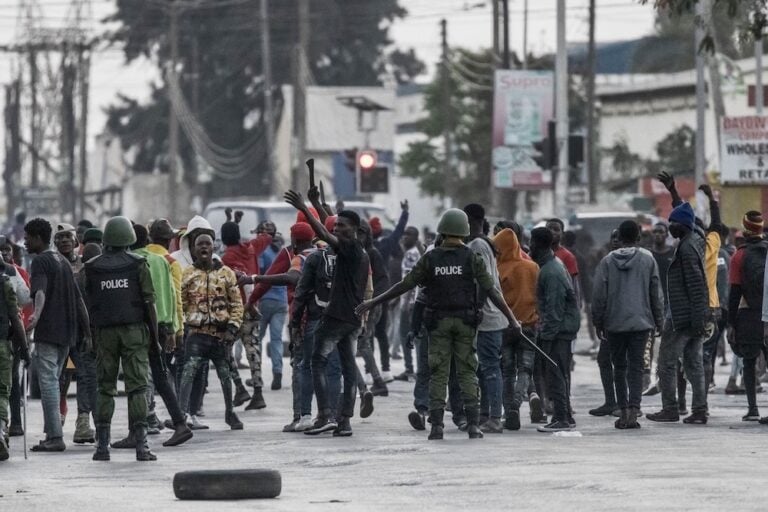(MISA/IFEX) – On 19 January 1998 “The Post” newspaper editor-in-chief Fred M’membe, senior reporter Reuben Phiri and two human rights activists appeared before the Lusaka High Court on alleged contempt of court charges. The case was rescheduled to 22 January following an application by Kaunda’s lawyers that it may take time to conclude and delay […]
(MISA/IFEX) – On 19 January 1998 “The Post” newspaper editor-in-chief Fred
M’membe, senior reporter Reuben Phiri and two human rights activists
appeared before the Lusaka High Court on alleged contempt of court charges.
The case was rescheduled to 22 January following an application by Kaunda’s
lawyers that it may take time to conclude and delay the more urgent hearing
of Kaunda who has been under state detention since 25 December, 1997 (see
IFEX alert.)
**Updates IFEX alert of 15 January 1998**
In another development, Johannesburg based “New York Times” reporter Donald
McNeil narrowly escaped arrest for speaking to Kaunda while the court was in
recess. McNeil approached to greet Kaunda and give him his business card
when one of the policeman guarding Kaunda stopped him and asked that McNeil
“follow him for a chat.” However, following an uproar from the audience and
the intervention of Kaunda’s lawyers, the reporter was released. McNeil
described the incident as “bizarre,” saying he was not aware that Kaunda
could not be interviewed while in court.
Background Information
The charges against M’membe and Phiri arose as a result of remarks printed
in Rueben Phiri’s article of 12 January. Phiri quoted Zambian civic
education chairperson Lucy Sichone and Zambian independent monitoring team
leader Alfred Zulu as describing the charges brought against detained former
president Kenneth Kaunda as “cheap.” M’membe, as editor-in-chief of “The
Post”, was also charged. On 13 January High Court Judge James Mutale ruled
that the remarks published in “The Post” were subjudice because they were
made while Kaunda’s case was still a subject of the court hearing. Judge
Mutale then ordered M’membe, Phiri, Sichone and Zulu to appear before him to
demonstrate why they should not be tried for contempt. His ruling was
prompted by an application by the country’s Attorney General Bonaventure
Mutale to have the four cited for contempt.


